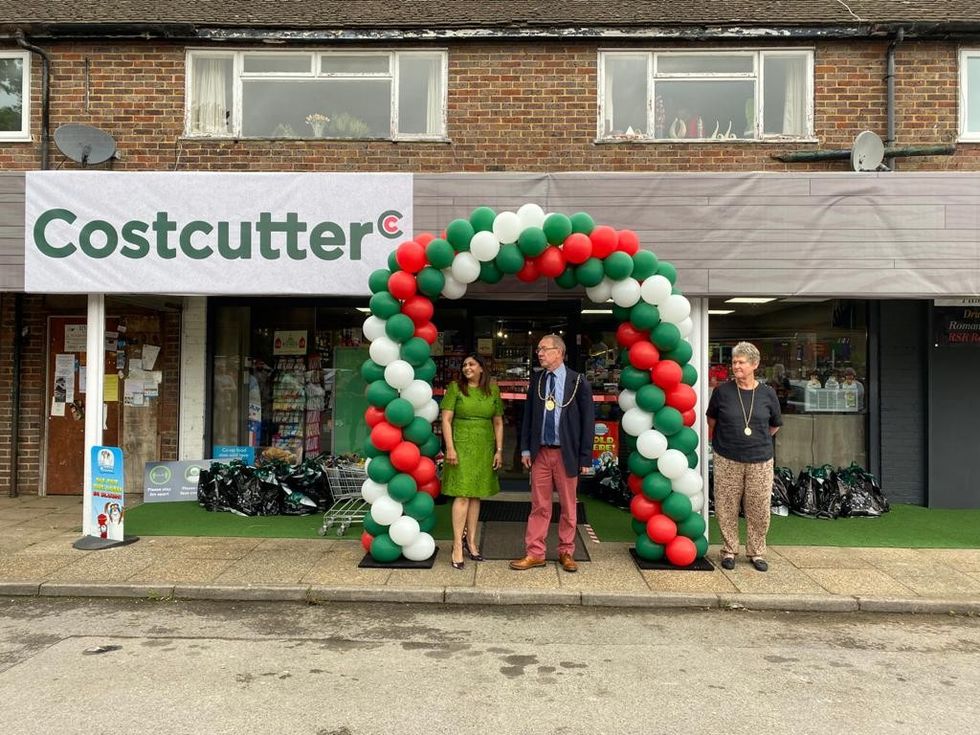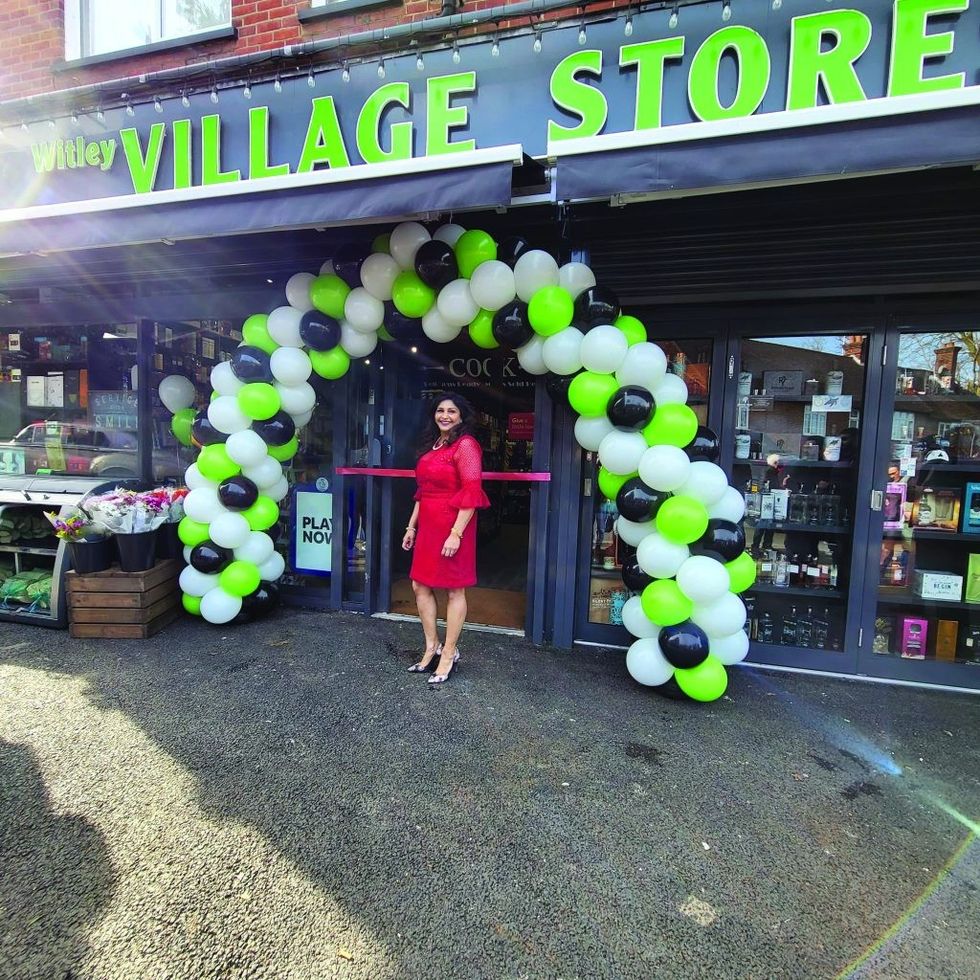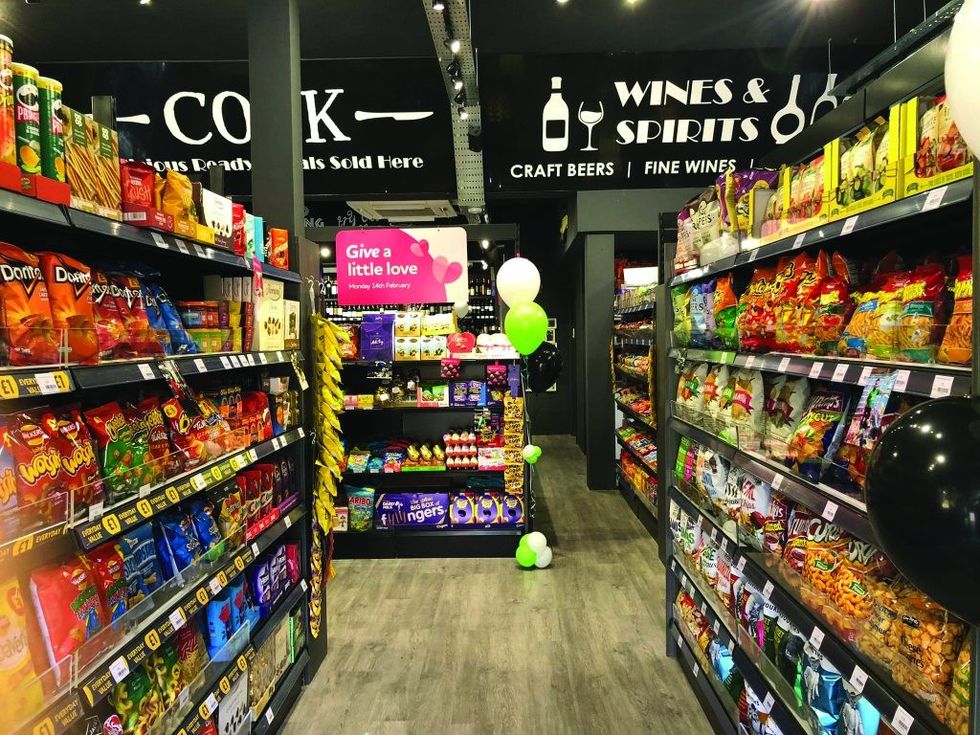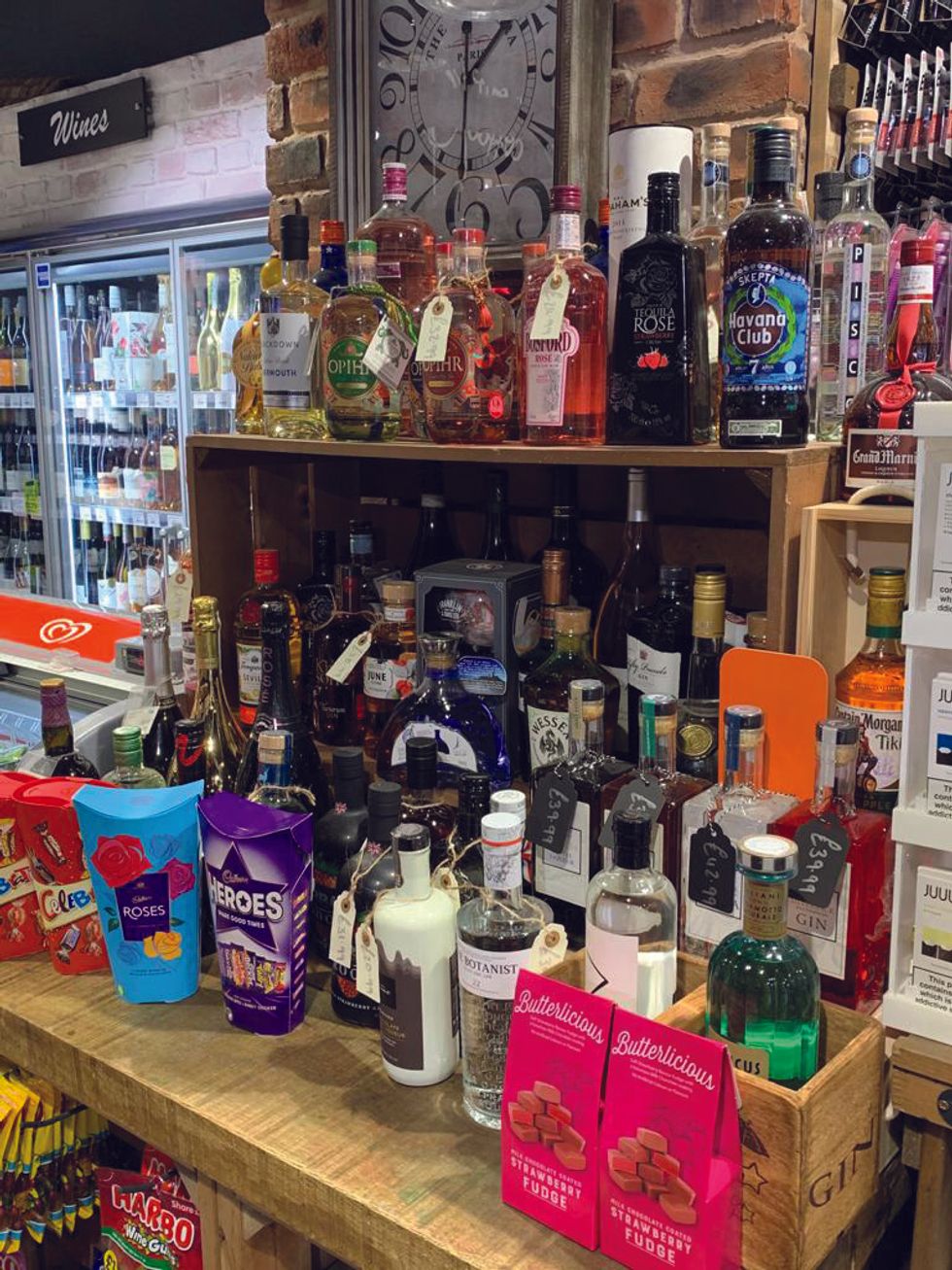Kay Patel always takes adversity as a challenge, and her determination to prioritise and succeed won her the Businesswoman of the Year award
“Remaining in your comfort zone is a barrier,” according to Kay Patel, who has made a career of attaining success by being uncomfortable and testing herself to the limits.
Over three decades, Kay has transformed her business from a small independent store to a multi-million-pound enterprise, navigating personal and professional challenges with grace and determination. And, the dynamic entrepreneur behind six thriving convenience stores in Surrey has been recognised as the Businesswoman of the Year at the 2023 Asian Trader Awards.
“I did step out of my comfort zone, and I did do things. I used to do banking as well, and I obviously have to accommodate other aspects of my life. It's all about prioritising what is first,” she says. “And sometimes you've got to put yourself in there as well.”
Kay's foray into the retail industry began in 1997 when she and her then-husband acquired their first store in Box Hill, Surrey. At just 20 years old and two weeks postpartum, Kay faced the dual challenge of motherhood and entrepreneurship. But her passion for retail shone through.
“I always want to do my own business. I became a very young mother, and it was a challenge. But if you're ambitious enough and you have a motive to work towards it, I think you can balance anything in life. I just took that as strength and then carried on,” she recollects.
Growing up in a business environment, Kay was inspired by her father Jagdish Patel, who came here from Africa in 1972 and worked in a plastic-making factory, before opening his own a store in Croydon. They later moved to Surrey and from a young age Kay accompanied her father to the cash and carry, and helped with the accounts, which sparked her interest in retail.
In 1998, the Box Hill store became a Costcutter, marking the beginning of Kay's association with the symbol group. Over the next decade she expanded her portfolio, acquiring and running several stores. This period also saw Kay balancing her growing family and a part-time job as a banking advisor.
“I think organisation is a secret to balance, giving the correct job the right priority,” she says. “You've just got to make sure you're ready for every situation and be a little bit more organised – although with children, young children, you cannot always be organised. But I always prioritised what was first.”
Resilience in adversity
Kay's resilience was profoundly tested in 2020, a year marked by personal and professional upheaval. Following her divorce in February and her mother's passing in September, disaster struck in December when a fire destroyed her prized Witley Village Stores. The fire, occurring during the festive season and amid the global pandemic, left Kay without her primary source of income.
“It was such a tough, challenging time. The fire destroyed the only source of income I had at that time, so financially it was a struggle and mentally I was exhausted,” she reflects.
Despite these challenges, Kay's determination never wavered. With the moral support from her three children, she rebuilt the store, transforming it into a larger, more modern establishment. The reopened site saw a 50 per cent growth in weekly sales, a testament to Kay's ability to turn adversity into opportunity.
“It wasn't easy,” she says. “My kids were there for me, and they were my strength and the ambition to carry on. I don't know how to describe it, to be honest. It was the phase that if I collapsed, then my whole world will collapse, including my kids. But if I kept fighting and going on, it meant I would build a better future for the children. So for me, as for all mothers, their kids are priority, and I think that's what I took down as the strength and carried on thinking I need to do this, not only for myself, but for my children as well.”
Her oldest daughter is a pharmacist, and the elder of the two sons has joined her in the business after graduation, while the younger is “setting out to do his own thing”.
Prior to the fire she had made commitments to buy other stores, so it was tougher getting the finance in place with a closed store. But she secured funding to grow the business, which saw the addition of four more Surrey stores during 2021. She bought her latest store in December last year.
Each new acquisition showcased her strategic vision and innovative approach. For instance, Kay's Costcutter Cranfield, which had been closed for 11 months due to Covid-19, saw a remarkable turnaround, with takings growing from £9,000 to £22,000 and still increasing.
Creativity and attention to detail are hallmarks of Kay's business philosophy. Her stores feature unique elements such as the “Play as you Go” area at the Cranfield store, where children can play with new and exciting toys while their parents shop. This innovation not only enhances the shopping experience but also boosts sales of these toys.
“We interact with our customers, and ask them questions as to, ‘What would you like in your local store?’. We have a lot of ideas, and it's not always possible to do everything, because we have to be very cost effective, but we try and incorporate what they suggest and their opinions,” she says.
“And we also ask the team, because I've got a lot of local staff that work for me, and they know the community very well.”
Empowering her team
Kay's success is not hers alone; she attributes much of it to her dedicated team. She believes in leading by example and creating an environment where her employees feel valued and empowered.
“I think initiative is a big thing. You should always praise them for what they do. Although I own the business, they are facing the customer. So I think they need to feel valued at all times and make sure they have the right training in order for them to carry on the right duties, to expand the business, and to build that relationship with the customers as well,” she says.
Kay's approach to management includes comprehensive training programmes, regular one-on-one meetings, and team-building activities. She fosters a culture of open communication and continuous learning, encouraging her staff to take initiative and learn from their mistakes.
“Training is a key thing. I have a portfolio of my own, basically shop training, alcohol training, the compliances, health and safety, all that. We try and do all that once every three months, and keep on top of it. And then, obviously, just making sure that the team actually practice that on an everyday basis,” she explains.
Kay also emphasises cleanliness and presentation, believing that a clean and hygienic environment attracts customers.
“We have a checklist for morning, afternoon, evening. For example, we make sure our coffee machine gets cleaned at least three times a day, because that's something customers are looking at. They want to see that hygiene. Dusty shelves are not always appreciated. I think a clean and hygienic environment also brings the customers in, and that's what we work towards every day,” she says.
Community engagement
For Kay, who has been a parish councilor for six years, business is not just about profits; it is about giving back to the community. She views her stores as community hubs and actively engages with local schools and sports clubs.
Local sourcing is another cornerstone of Kay's business.
“We specialise in fine wines and spirits in one of the stores. We have our local breweries. We have our local bread supply, local eggs. And we don't really source them. They actually come to us because we're all about helping small businesses. It's very important that these small businesses survive as well. So any little help that we can give by purchasing from them, I think it's a great idea, because it puts revenue back into the community,” she notes.
She highlights how the local businesses stepped up during the pandemic, when stores faced availability issues.
“It was the small businesses that actually delivered the bread, the eggs, and the flour. We used to buy a 10 kilo bag of flour to bag up on the premises and do one kilo each and sell it, because we couldn't get any flour, any pasta,” she says. “It was the small businesses that actually kept us going as well. So, it goes around in a circle, doesn't it?”
It’s the journey
Kay is a strong advocate for women in retail and she says winning the Businesswoman of the Year award from Asian Trader was a proud moment for her.
“I was absolutely gobsmacked when I was nominated, and I felt very proud,” she says. “Think about it, after 30 years, I was recognised. I've been doing this for 30 years. It's a very long time, and to achieve an award after all this, because you don't expect anything. You just keep going. You do what you're good at, you do what you're good at, you do what you're good at. Very rarely, someone comes up to you and says, ‘You know what? someone else is actually proud of you’.”
While she thinks that women are now getting more recognised than they were before, she would like to see even more of it.
“There are a lot of women out there that do a lot of things, but not their skills and their knowledge and their efforts, they're not appreciated,” she says.
“When Asian Trader brought out the Businesswoman of the Year award, I think it was a fantastic thing. They actually recognised that women are in business, and they do have a business head. They can also run a business successfully, as successfully as running their home and looking after the kids,” she says.
She encourages young women to pursue their dreams, emphasising the importance of the journey rather than the destination.
“I think they should go ahead and listen to what they want to do. It can be a challenge, but I think every challenge is a learning curve, and I think they should go out there in the world and show their talent and show that they've actually got something to give back to the community,” she says.
“It's not about the destination, it's about the journey. Destination could be anywhere, you can reach your destination as in little time as you want to, but it’s the journey that you actually live towards it, the learning curves you learn, the people you meet, the friends you make – the enemies you make!”
In fact, you’ll see a canvas with this quote – “It’s not about the destination, it’s about the journey” – In each of her stores.
“Although everybody reaches their destination, everything they learn through reaching that destination is important. That's my motive. It will always be so,” Kay concludes.






